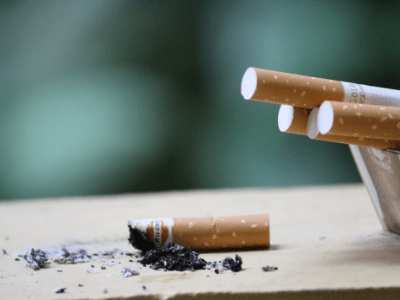A few months ago, I wrote on the pages of Brussels Times that a world free of addiction is utopia.
I pointed to the evidence showing that the harm and risk minimization is the only realistic approach to managing addictions. I called upon the Members of the European Parliament to let the voice of civil society who works with people with addiction problem on the ground to be heard in the EU's elected chamber.
I pleaded to the policy makers in the European Commission to embody the latest scientific findings in the legislative proposals concerning addictions management and I suggested to use the Commission's own resources in the form of mandate expansion of the European Monitoring Centre for Drugs and Drug Addiction (EMCDDA), a Lisbon-based European Commission agency that symbolizes the global etalon of drug addiction policy.
Half a year later, it’s time to take stock of the progress made, which now needs to be put in the context of the ongoing health crises. The pandemic puts immense pressure on Europe's health systems and will continue to do so in the years to come. We will see worsening mental health situation and with it the increase in addictive behaviour. Yet again and deliberately, I refrain from separating addictions per substance, as science increasingly recognizes it as an integrated phenomena occurring because of a play of circumstances. Regardless, it demonstrates through binge drinking, smoking or pathological gambling for example.
Addictions should be treated within an integrated drug policy, which means that it links together the issues of alcohol, tobacco, illicit drugs and gambling, associated addictive disorders and other health and social impacts and consequences. We know, also thanks to the EMCDDA monitoring, that countries, that resorted to harm reduction in illicit drugs, saw positive effects on tackling HIV and viral hepatitis. The approach is still missing in case of alcohol, tobacco, and gambling.
And to my own surprise, I am pleased to say that this big ball started rolling in the right direction, although slowly and cautiously. The ongoing discussions amongst the Member States on the future mandate of the EMCDDA show that there is an increasing understanding of the need for the Lisbon agency to be able to gather data on other substance and non-substance addictions such as alcohol, tobacco use, and gambling. The European Commission is expected to publish a legislative proposal in the beginning of the next year, so it is expected that the upcoming presidencies will include this topic in their agendas.
In the meantime, the European Parliament's BECA Committee began discussing the Commission's Europe's Beating Cancer Plan that includes preventive measures on dealing with main cancer-causing substances such as alcohol and tobacco. The Commission is a longtime proponent of an unrealistic, unscientific and many times disputed end-game strategy. No surprise here as it is a symptom common to other large, disconnected, and slow-paced institutions involved in the world governance.
The Members of the European Parliament, however, began to use another language. In the debates that are leading to the December 6th adoption of BECA Committee report on Europe’s Beating Cancer Plan, no longer we are startled by a nearly unanimous political ambition to achieve Europe without addiction by 2030. It is refreshing to see at least some MEPs take science seriously as opposed to a few years ago, when us social workers were left flabbergasted by endless repetition of end-game mantra directing Europe to repeat the mistakes of the past, including those of the War on Drugs or HIV/AIDS epidemic.
Most recently, the change of wind is evident from the discussion surrounding smoking alternatives, where the individual MEPs from left to right, regardless their political leaning, began to understand that if we want to make smokers stop killing themselves by their dangerous habit, we must make it easier to switch to a less dangerous form of nicotine intake.
The recent survey made amongst the MEPs on their perception of tobacco alternatives concludes that those who do get informed about reduced-risk products find them suitable for smoking cessation as they pose much less risk to smokers and those around them.
However, the progress of opinions is slow and the discussion on the substance addiction is still divided, and highly politicized on the expense of science. Some of the arguments are highly valid, especially those that mention the importance of child protection. We must always strive to protect children (or anyone really) to fall victim to addiction of any form regardless how draconian this task may be.
Due to the highly integrated nature of addictive behaviour, we must push contemporary science to the forefront even more, and come up with solutions that merge child (non-addict) protection with our efforts to help people quit drinking and smoking. There is wealth of science to support that. For example, the French Pasteur Institute's conclusions on the toxicity of e-cigarettes leave no doubt on the efficiency of alternative products as it highlights that vaping produces at least 500 times less toxic substances than cigarettes. This supports earlier research by Public Health England and more data keep coming from around the world.
Our journey to healthier Europe is far from over. We will have to keep explaining the complexity of addictions while humanizing and destigmatizing addictive behaviour in the society. People with addiction problem are not "junkies" who "should stop". They are our siblings, parents, and friends who are doing what they are doing for an enormous plethora of reasons. Our job should be to make sure that they do not jeopardize their own and other people's health.


